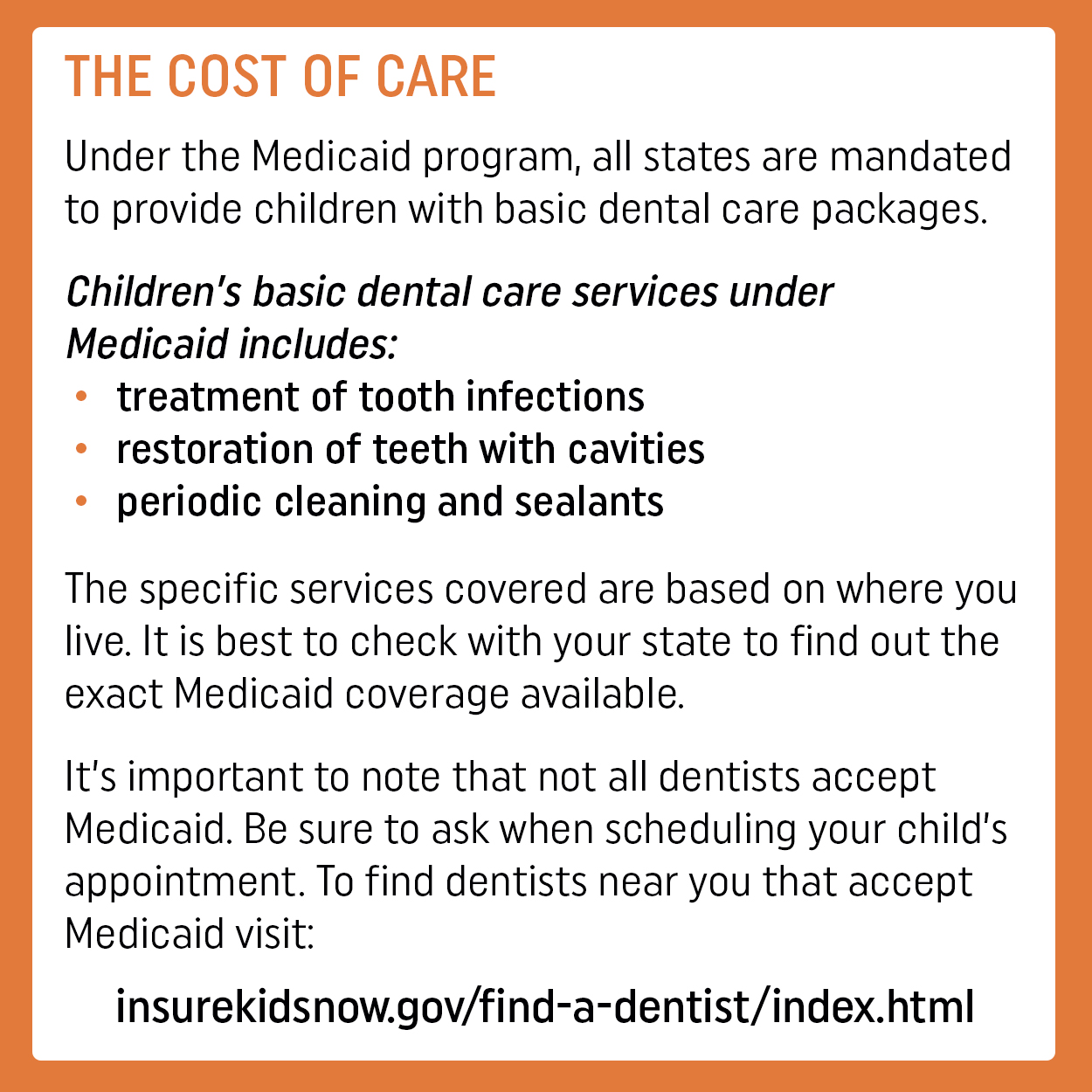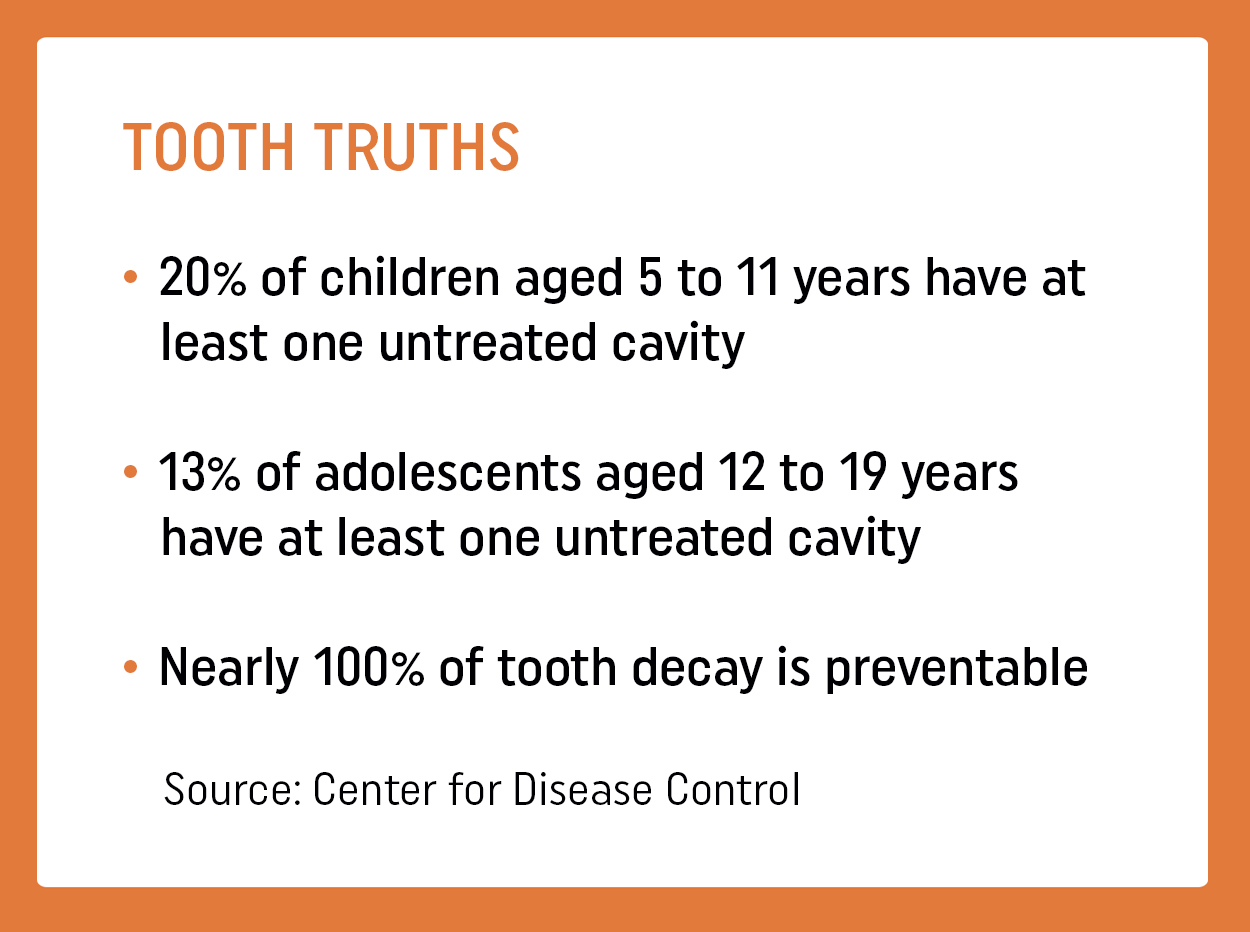Keeping Your Child’s Teeth Healthy
Why you should make a big deal of little teeth
Dental disease is the most common chronic illness for children in the United States. Left untreated, it can lead to pain, infection, difficulty eating and speaking, and reduced self-esteem. In fact, children who have poor dental health often miss more school and receive lower grades than children who don’t.
The good news is that dental disease is preventable. The key is establishing healthy dental habits early and encouraging those habits throughout their teens.
Good habits start at home
Dr. Mark Pullano, DMD, has been treating children as part of his family practice in Williamstown, MA, for 30 years. He says one of the most important things parents can do to keep kids’ teeth healthy for life doesn’t even have to do with brushing.
“It’s about bedtime bottles,” he explains. “Bottles are the number one cause of demise for juvenile teeth. Milk, formula, and juice coat developing teeth and cause them to basically slowly rot over a series of nights. Anything but water at bedtime is like gas on a fire for tooth decay.”
While it’s common to think that baby teeth aren’t all that important, Pullano says that, in many ways, they’re just as important as adult teeth.
“In addition to helping children chew, speak and smile,” he says, “baby teeth hold space in the jaw for the permanent teeth that are growing under the gums. If baby teeth are lost prematurely, it can lead to all kinds of problems as other baby teeth can drift in the open space. They can then block emerging adult teeth and cause crowding or impaction. Those are not easy or fun problems
to fix.”
In addition, he notes, adult teeth develop very close to the roots of the baby teeth. Untreated cavities in the baby teeth can lead to an infection or abscess, which can damage the adult tooth developing below it.
Brushing basics
Because decay can occur as soon as teeth appear (usually around six months of age), it’s important to begin a brushing routine early.
Here’s are some brushing basics to guide you:
Infant to age 3: Start brushing their teeth as soon as they begin to come in. Use a child-size toothbrush and a small amount (think: size of a grain of rice) fluoride toothpaste each morning and night. Pullano emphasizes the importance of using the appropriate amount of toothpaste as consuming too much fluoride can be harmful to young children.
Children 3 to 6 years old: Continue brushing twice a day (morning and night), using a pea-sized amount of fluoride toothpaste. Pullano says to go ahead and let children have the experience of brushing their own teeth but don’t trust they’ve done a thorough job. “You need to be present to watch them and then go in there and really do the job once their ‘work’ is done.” In addition, as soon as they have two teeth that touch, flossing should be introduced as part of the brushing routine.
Children over 6: You should continue to supervise your children’s brushing twice a day until you’re sure they can do a good job.
When to see a dentist
The American Dental Association recommends that children see a dentist by their first birthday. Pullano says these visits serve two purposes: “First, they allow us to spot any problems early, including cavities or issues with spacing. Second,” he adds, “It gets them used to visiting the dentist so that, hopefully, they'll have less fear about it as they get older.”
While pediatric dentists are trained to handle the wide range of issues associated specifically with children’s dental health, they’re also hard to come by. If you’re unable to schedule an appointment with a pediatric dentist for routine needs, don’t delay care. Instead, look for a family dentist that accepts children as patients.
6298